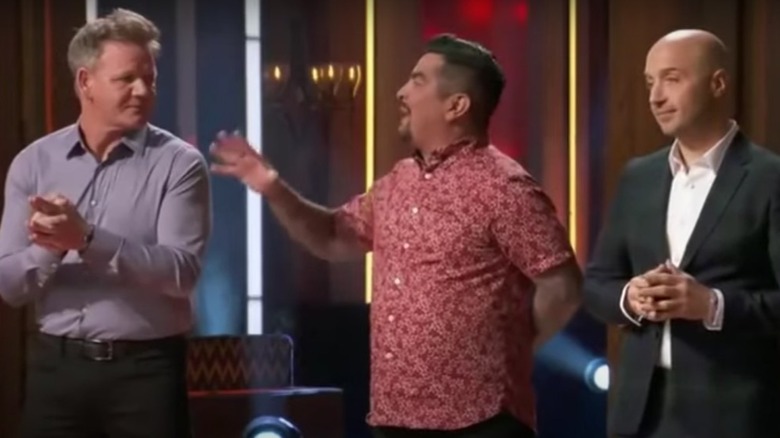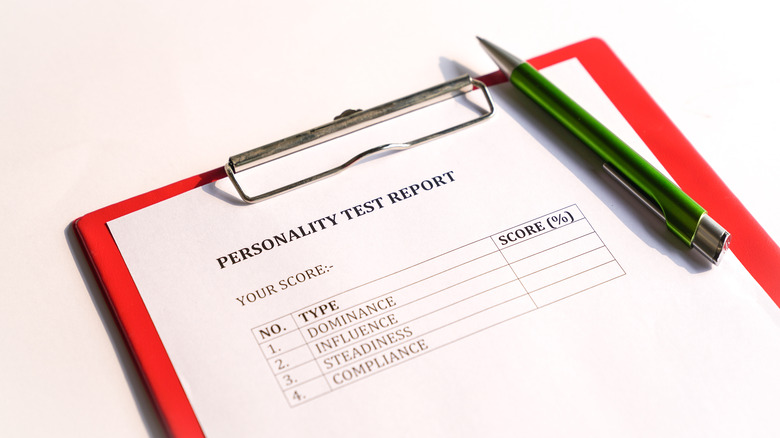The Unexpected Test You Have To Pass To Make It On MasterChef
Intellectually, we know that cooking competitions like MasterChef are less a documentary about contestants than the curated world of reality television. Intellectually, we know this, but we still struggle to grapple with all the implications of what that means. For instance, contestants are psychologically profiled to fit into the plotlines we consume.
In 2018, Jessie Glenn wrote an exposé on her MasterChef experience for Salon. As she only appeared for the auditions for season 3, her piece is not a gonzo dive into the show's entirety. However, the fact she wasn't a competitor proper makes the psychological evaluation she underwent even more interesting. She and other contestants had to travel to Culver City in order to complete a two-hour test. Then, a psychiatrist meets with each to ask them questions about how they answered the evaluation.
Unlike an actual medical relationship, the dynamic between the two revealed itself to be a detached observer attempting a dissection. Aggravated, Glenn asked, "What about that 'First Do No Harm' clause in your medical training?" "We're done here," he responded, showing her the door and sending her on to a visit with a private investigator.
The view from the other side
The way that the people who conduct these tests word their work is not much better. In a company profile, MHS, an assessment company, highlights how its founder Dr. Steven Stein has worked on shows like MasterChef Canada. "Working with Reality TV shows goes beyond seeing interesting applications for our existing tools at MHS," they say, transitioning to measuring success and the effectiveness of emotional intelligence. That detached tone dominates the piece.
While scientific studies require a remove from the subject, people who are about to dive into the potential hellscape that is reality television should receive better care from the production company than an evaluation that sees them as data points. As the Australian news service ABC wrote at the end of July, at least 38 people worldwide have died by suicide since appearing on these programs that put contestants in stressful situations on the program in the form of challenges and in the real world by virtue of how the show portrays them. Some of those who are still alive report severely damaged mental health, as the appearance has the potential to ruin their reputation and careers. While the people who screen potential candidates do not bear direct responsibility for this fallout, the attitude towards the work is emblematic of how the shows treat their so-called stars.
If you or anyone you know is having suicidal thoughts, please call the National Suicide Prevention Lifeline at 1-800-273-TALK (8255).

